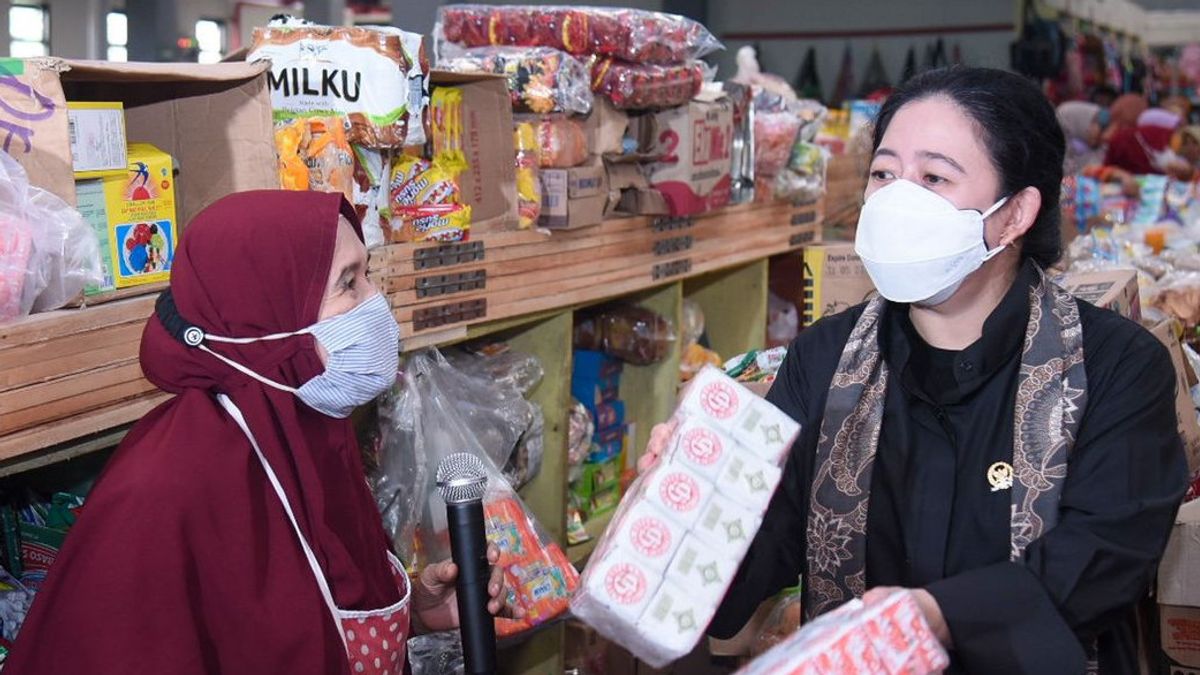JAKARTA - The government is asked to intervene in food commodity prices which continue to rise before Eid al-Adha. The unstable price of food commodities is quite burdensome for the community.
"We encourage the government to immediately stabilize the prices of basic necessities. The management of food commodities must be improved to cope with skyrocketing prices, especially the prices of chili and shallots," said DPR RI Speaker Puan Maharani, Tuesday, July 12.
Based on the latest data from the National Strategic Food Price Information Center (PIHPSN), the price of red cayenne pepper in traditional markets in Indonesia reaches Rp. 102 thousand/kg. Even in Jakarta, the price of red cayenne pepper today penetrates Rp. 160 thousand/kg.
Not only chili, the price of shallots is also still increasing to Rp 80 thousand/kg from the previous Rp 40 thousand/kg and the price of purebred chicken continues to increase to Rp 39,350/kg or more than Rp 50 thousand per head. Puan said that there must be concrete efforts from the government to maintain food price stability after Eid al-Adha.
"The prices of chili, shallots, chicken meat have been rising for more than a month. On several occasions when I visited traditional markets in a number of areas, traders and buyers complained that prices were still high," said Puan.
One of the reasons why chili prices continue to rise is the supply from production areas is reduced. The DPR asked the Central Government to cooperate with the Regional Government to maximize the supply and demand system for staple foods.
"In overcoming this problem, more intensive coordination is needed between the Ministry of Agriculture and the Ministry of Trade regarding the food logistics system," said Puan.
The former Coordinating Minister for Human Development and Culture also assessed that market operations need to be encouraged to prevent naughty practices that take advantage of the situation. Puan said, the high variety of food commodities can cause inflation which will have an impact on the national economy.
“So far, the government has only focused on cooking oil, but other food commodities have not received attention. In fact, the increase in chilies and onions has been going on for quite a long time,” he said.
Puan said the House of Representatives would continue to monitor through Commission IV of the House of Representatives on rising food commodity prices. Even during this recess, DPR members are encouraged to go down to traditional markets in their respective electoral districts.
“Members of the council also have to check at the farmer level to find out the existing problems and help find solutions. This includes monitoring the distribution chain from farmers to consumers," said Puan.
In addition, the DPR encourages the Government to anticipate rising food prices made from imported raw materials such as soybeans and wheat. Staples such as noodles and tofu and tempeh have the potential to experience price spikes due to the conflict between Russia and Ukraine.
“Food is one of the basic basic needs whose supply absolutely must be considered. Do not let the problem of high commodity prices cause food shortages which will have an impact on people's welfare," he said in his written statement.
"Food scarcity and rising food prices will add to the burden of living for the community, especially the lower middle class in the midst of efforts to recover from the impact of the COVID-19 pandemic," added Puan.
The English, Chinese, Japanese, Arabic, and French versions are automatically generated by the AI. So there may still be inaccuracies in translating, please always see Indonesian as our main language. (system supported by DigitalSiber.id)













